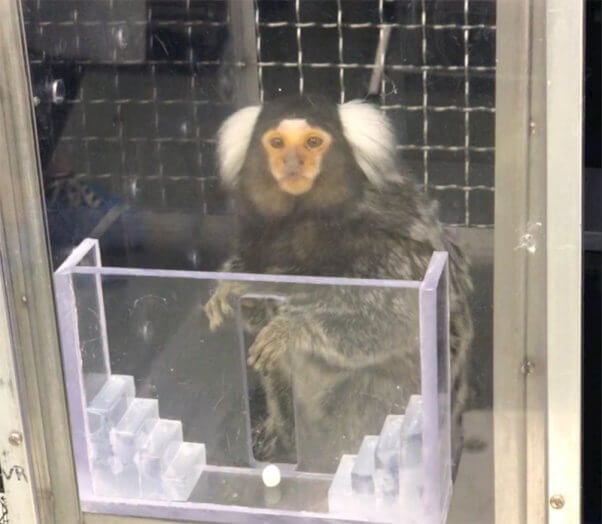‘PETA v. University of Massachusetts–Amherst’ Case Summary
Case Name: People for the Ethical Treatment of Animals, Inc. v. University of Massachusetts Amherst
Index Number: 2284-cv-02096
Court: Superior Court of the Commonwealth of Massachusetts for Suffolk County
In September 2022, PETA filed a lawsuit with Suffolk County Superior Court in the Commonwealth of Massachusetts against the University of Massachusetts–Amherst (UMass) to compel the school to produce video recordings and other records relating to experimenter Agnès Lacreuse’s taxpayer-funded menopause experiments on marmosets as well as the names of UMass’ Institutional Animal Care and Use Committee (IACUC) members.
Between May 2021 and January 2022, PETA submitted three public records requests pursuant to the Massachusetts Public Records Law. The records we sought from UMass in our first two requests included protocols, photographs, and video recordings that expose the gruesome reality for vulnerable marmosets in Lacreuse’s laboratory.
Specifically, experimenters in the laboratory perform invasive surgeries on female marmosets, implanting electrodes in holes that they drill into the animals’ skulls. Then they cut into their necks and thread electrode leads from their scalp and neck through their abdomen. These experiments purportedly claim to study age-related changes in human cognition associated with menopause—a transition that marmosets don’t even naturally experience. To mimic symptoms that don’t occur naturally in these animals, experimenters surgically remove marmosets’ ovaries and use hand warmers on the monkeys to mimic hot flashes. The marmosets are routinely zip-tied into a restraining device to immobilize them, and then they are shoved into a plastic cylinder that’s screwed in place and are subjected to the noise of an MRI machine.

In response to PETA’s requests, UMass withheld descriptions of procedures, other portions of the protocols, and many videos, such as those of social-separation and thermal-regulation experiments on marmosets.
In response to PETA’s third records request, seeking information related to UMass’ IACUC—whose membership is dictated by federal law—the university withheld the names of its IACUC members. The IACUC is responsible for oversight of the animal care and use program at UMass, and the law requires that the committee be composed in a specific manner. For example, it requires that one member not be affiliated with the institution and not be a “laboratory animal user or former user” or have any “‘discernible’ personal or spousal ties to the institution other than as a member of the Committee.” Without the names of UMass’ IACUC members, it’s impossible for the public to ensure that the committee is properly constituted and thus is adequately carrying out its legally mandated responsibilities.
UMass improperly withheld these materials, citing exemptions under the Massachusetts Public Records Law for materials that, if disclosed, “may constitute an unwarranted invasion of personal privacy”; “records relating to the security or safety of persons or buildings, structures, facilities, utilities, transportation, cyber security or other infrastructure, the disclosure of which … is likely to jeopardize public safety or cyber security”; trade secrets or proprietary information; and materials “specifically or by necessary implication exempted from disclosure by statute.”
PETA is fighting to ensure that UMass cannot improperly shield its activities from public scrutiny by relying on unsubstantiated claims that public records are exempted from disclosure.
This case is currently in the discovery phase.


